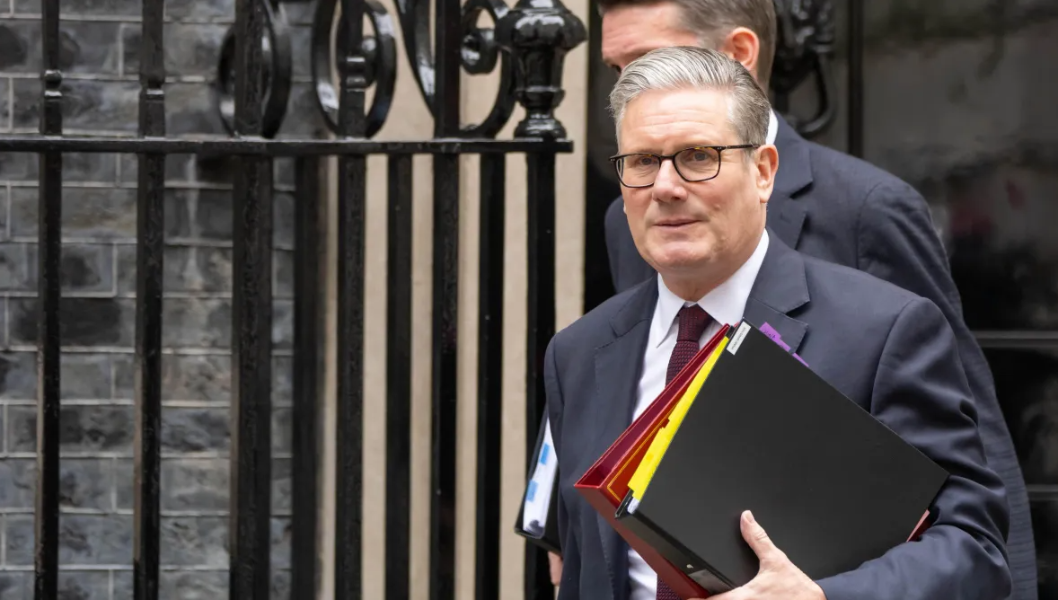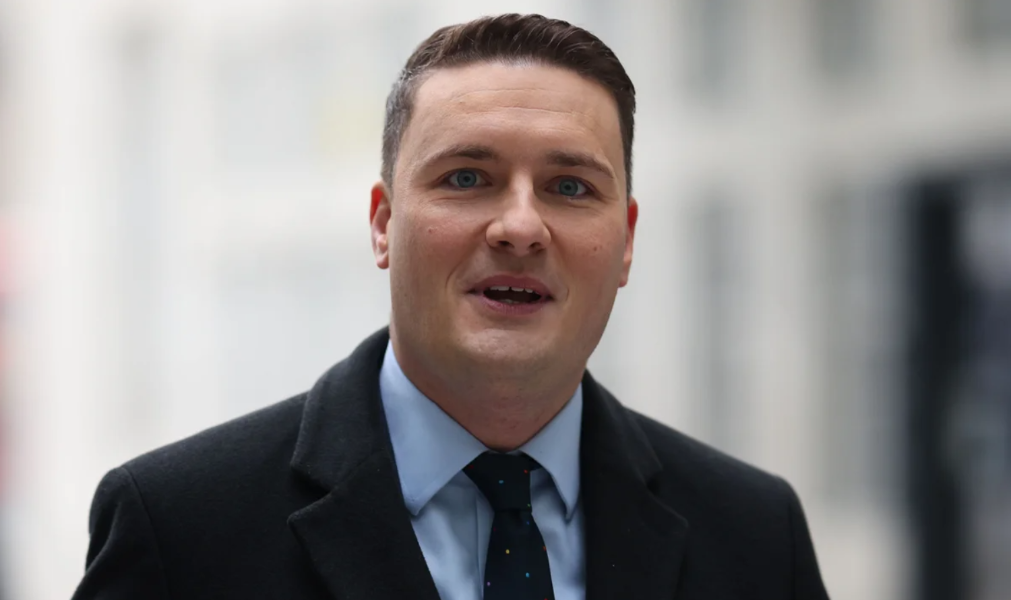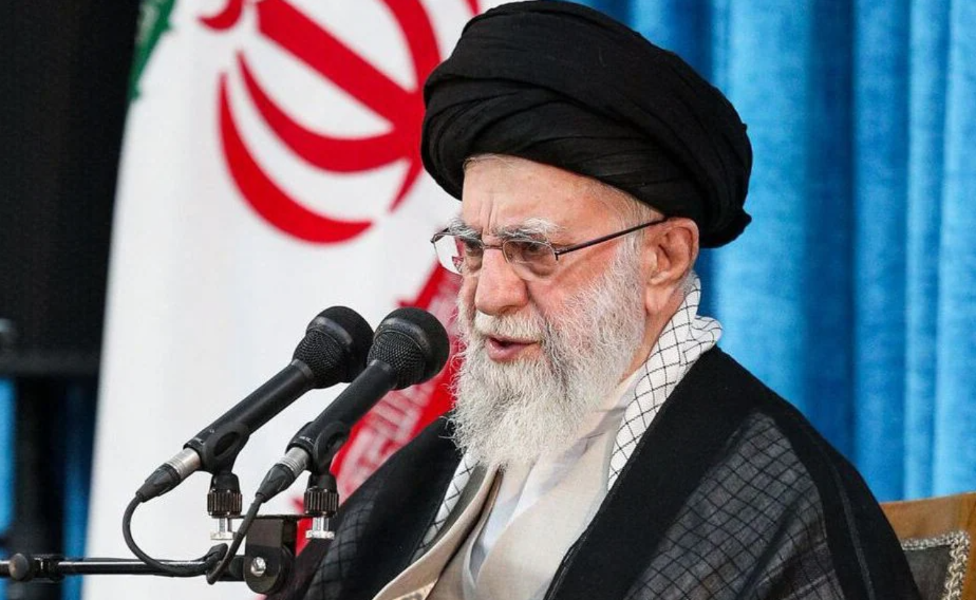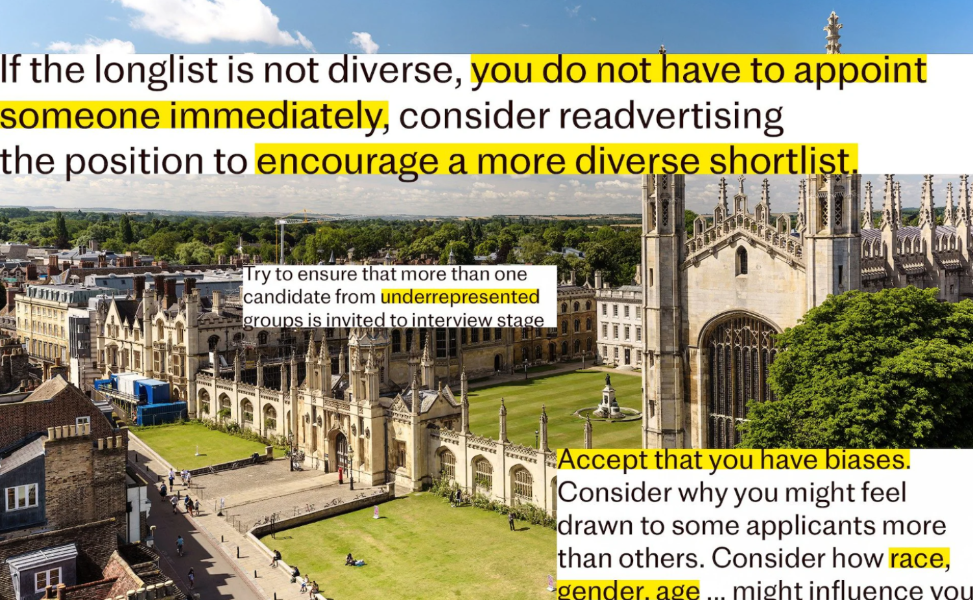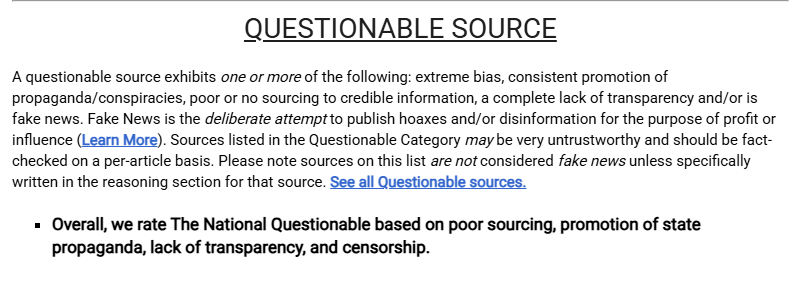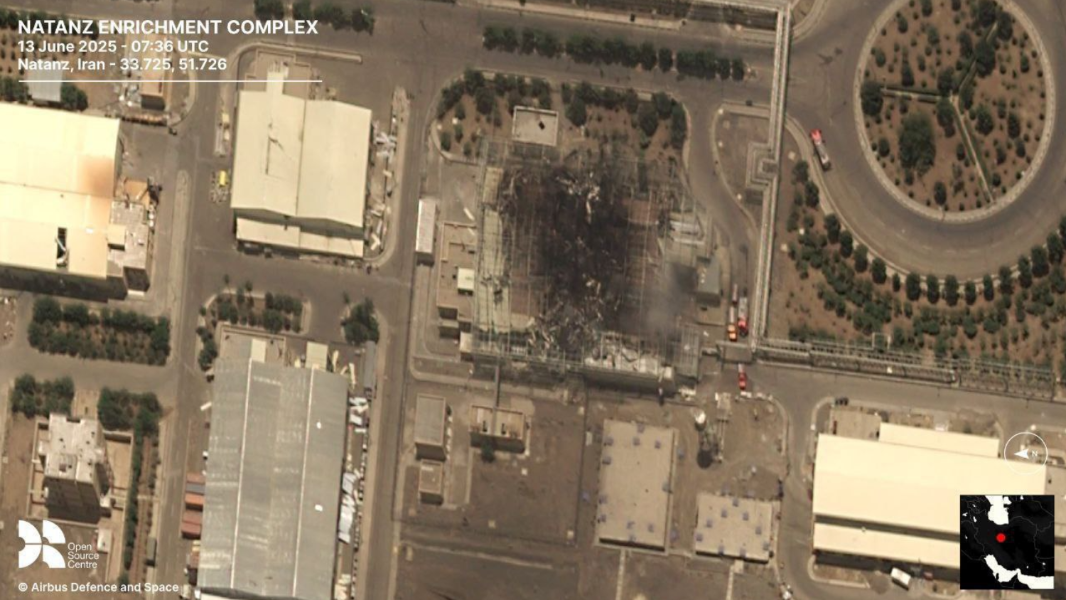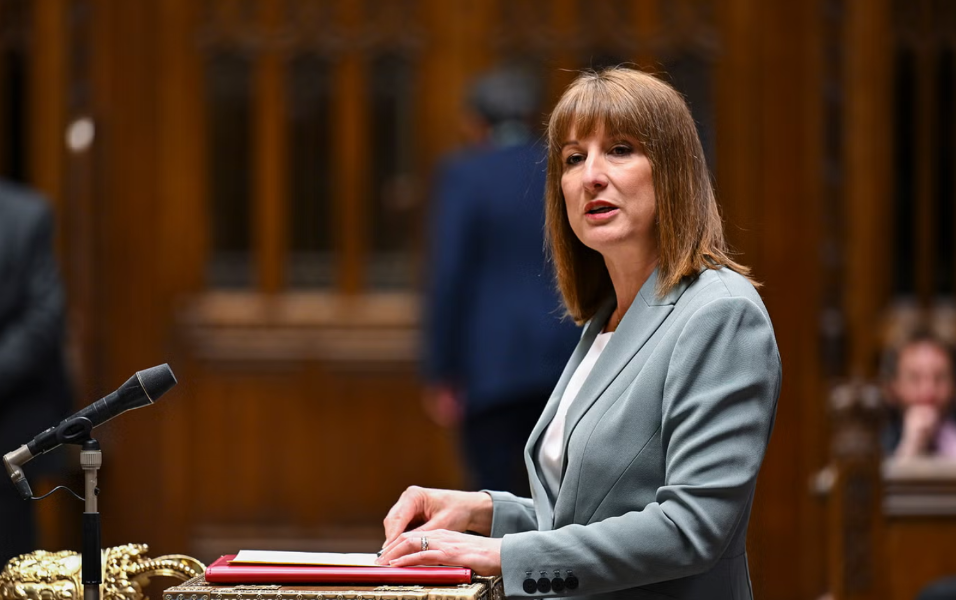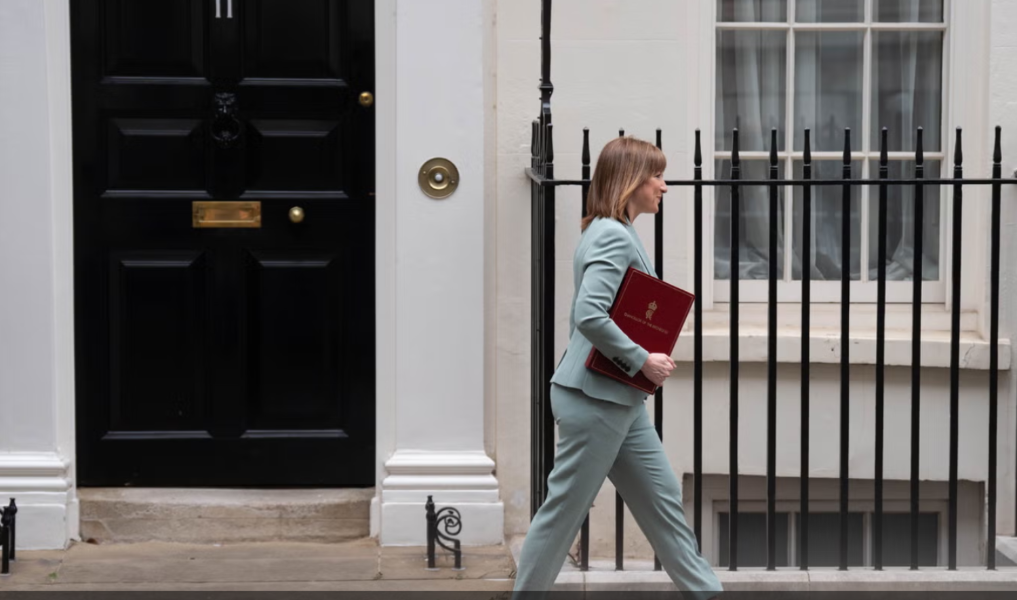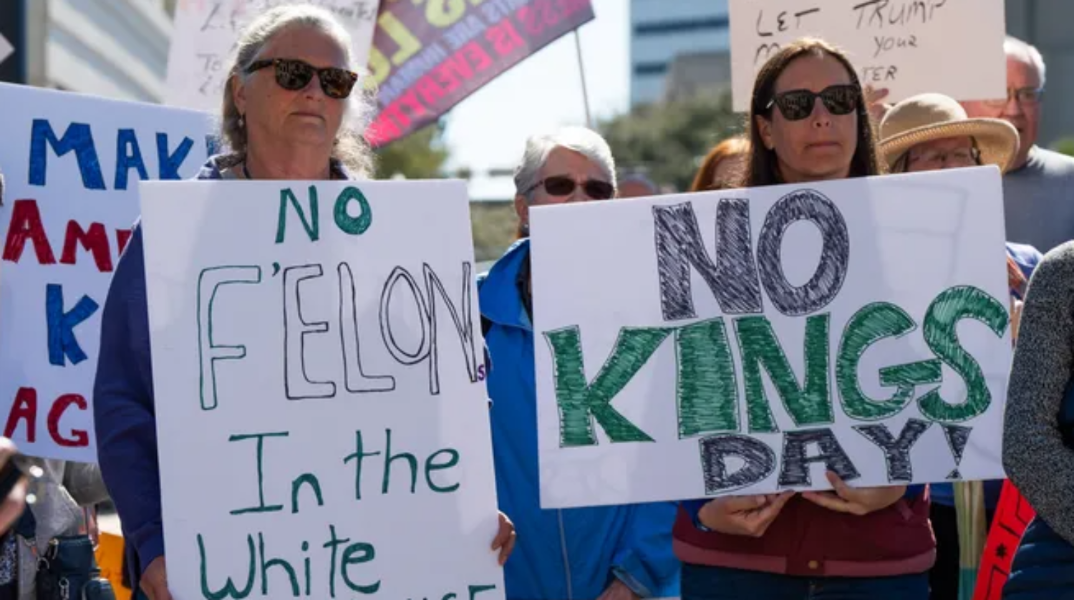-
Posts
10,712 -
Joined
-
Last visited
Content Type
Events
Forums
Downloads
Quizzes
Gallery
Blogs
Everything posted by Social Media
-

Israel’s Strikes Leave Iran Reeling Amid Escalating Conflict
Social Media replied to Social Media's topic in World News
Some off topic conspiracy nonsense and replies has been removed. The topic is: Israel’s Strikes Leave Iran Reeling Amid Escalating Conflict -
Manhunt Ends as Suspect in Minnesota Lawmaker Shootings Is Captured The man suspected in a shocking weekend attack that left a former Minnesota lawmaker dead and another wounded has been taken into custody, ending a nearly two-day manhunt that rattled communities across the state. Law enforcement officials confirmed that Vance Boelter, 57, was arrested Sunday evening in Minnesota. The confirmation came from two officers who spoke to The Associated Press on condition of anonymity, as they were not authorized to discuss the ongoing investigation publicly. Authorities believe Boelter was behind two separate shootings early Saturday that rocked the northern suburbs of Minneapolis. Former Democratic House Speaker Melissa Hortman and her husband, Mark, were found dead in their Brooklyn Park home. Not long after, Senator John Hoffman, also a Democrat, and his wife, Yvette, were injured during an attack at their residence in Champlin, located approximately nine miles from the first crime scene. Boelter’s capture occurred within the state, though officials have not yet revealed the specific location. Earlier on Sunday, Drew Evans, superintendent of the Bureau of Criminal Apprehension, held a news conference announcing that a nationwide warrant had been issued for Boelter's arrest. Evans also revealed that investigators had located a vehicle believed to be linked to the suspect. The car was discovered in the early morning hours just a few miles from Boelter’s residence in Green Isle, a rural farming community about an hour west of Minneapolis. “There was relevant evidence found in the vehicle,” Evans said, though he declined to provide further details at this time. He also confirmed that a tan cowboy hat believed to belong to Boelter was discovered near the vehicle, adding a strange but significant detail to the unfolding investigation. Authorities allege that Boelter posed as a police officer during the attacks, even modifying a vehicle to resemble a law enforcement car. The FBI, which joined the investigation, issued a $50,000 reward for information leading to Boelter’s arrest and conviction. A photo released Saturday showed Boelter wearing a tan cowboy hat, and the public was urged to report any sightings. Investigators have spoken with Boelter’s wife and other family members, according to Evans. “They were cooperative and are not in custody,” he stated. As Minnesota begins to process the violence and mourn the loss of a respected former lawmaker, questions remain about Boelter’s motives and how he was able to carry out such calculated attacks. For now, the focus turns to justice, as authorities prepare to release further details about the case and the suspect’s arrest. Adapted by ASEAN Now from AP 2025-06-16
-
A wave of disbelief has swept across Minnesota following a violent attack that left two state lawmakers dead and two others critically injured in what authorities are calling a politically motivated assassination attempt. Police searching for the alleged gunman, 57-year-old Vance Luther Boelter, say they have located an unoccupied car linked to the suspect in rural Sibley County, about 50 miles from the crime scenes. Melissa Hortman, the state's top Democratic legislator, and her husband, Mark, were found shot dead in their Brooklyn Park home early Saturday morning. Shortly before, State Senator John Hoffman and his wife, Yvette, were gunned down at their home in Champlin but survived after undergoing surgery. Police said Boelter, disguised in a latex mask and posing as a police officer, carried out the attacks using a vehicle equipped with flashing emergency lights to impersonate law enforcement. Authorities believe Boelter targeted the lawmakers for political reasons. A target list recovered from one of his vehicles reportedly contained the names of several Democratic officials, including Minnesota Governor Tim Walz, Congresswoman Ilhan Omar, U.S. Senators Amy Klobuchar and Tina Smith, and State Attorney General Keith Ellison. "Clearly, this is politically motivated," Senator Klobuchar told NBC’s Meet the Press. After exchanging gunfire with police at the second crime scene, Boelter managed to escape on foot. His abandoned black sedan was discovered Sunday morning in Sibley County. Residents were alerted with a message: “Suspect not located. Keep your doors locked and vehicles secured.” A cowboy hat matching Boelter’s known appearance was found on a nearby road, further confirming the connection. In a separate development, Boelter’s wife, Jenny, was briefly detained during a traffic stop in Onamia on Saturday, more than 100 miles from their home, along with three relatives. She was released without being taken into custody, according to local outlet KSTP. Federal authorities have now joined the manhunt, extending the search into South Dakota and placing Boelter on the FBI’s most wanted list. A $50,000 reward has been offered for information leading to his capture. Details of the attack have shaken residents and lawmakers alike. A Facebook post by someone identifying as a nephew of Yvette Hoffman said she threw herself on their daughter during the attack, using her body to shield the girl from gunfire. The suspect, Boelter, has a background in security and military training, according to his CV. Investigators say he was equipped with realistic police gear, making it easier to gain access to his targets. The state’s Democratic–Farmer–Labor Party, affiliated with the national Democratic Party, is mourning the loss of two key figures. Neighbours of the Hortmans expressed their grief, describing them as kind, civic-minded people who maintained relationships across party lines. "They were very nice neighbours in a very quiet neighbourhood," said Taha Abuisnaineh, a Brooklyn Park resident who had known the couple for over two decades. "We are very shocked." Other residents echoed the sentiment. "What a big loss for Minnesota," said a neighbour who received an annual Christmas card from the couple. “My next-door neighbour heard the shots. We've all been texting back and forth." In Sibley County, where the suspect’s car was found, local resident Brian Liebhard shared the prevailing mood. “This guy needs to get caught,” he told the BBC. “I don’t agree with everything they vote for, but this is sad – the guy went wacko.” As Senator Hoffman and his wife recover, the community waits anxiously for more answers. Authorities expect the couple to make a public statement once they are able. For now, Minnesota remains stunned, united in grief, and on edge as the manhunt continues. Timeline: Adapted by ASEAN Now from BBC 2025-06-16
-
Starmer Orders National Grooming Gangs Inquiry After Casey Review Prompts Policy Reversal Prime Minister Sir Keir Starmer has announced a national statutory inquiry into grooming gangs across the UK, marking a significant reversal of his government’s previous stance. The shift follows the findings of a review conducted by Baroness Casey of Blackstock, which reportedly concludes that victims were “institutionally ignored for fear of racism.” Starmer acknowledged that while his initial reluctance was grounded in concerns about delaying justice, the evidence presented by Casey ultimately changed his mind. “It’s the right thing to do,” he said on Saturday, referring to the decision to initiate a full-scale investigation. Baroness Casey’s review, commissioned by the Home Office in January, is expected to be laid out in detail by Home Secretary Yvette Cooper in Parliament on Monday. A central and controversial element of the findings is an explicit connection drawn between grooming gang cases and men of Pakistani heritage. The review is believed to highlight that white British girls were often overlooked by authorities out of fear of being perceived as racist, a reality that Casey deems a systemic failure. The government is understood to be concerned about possible civil unrest in response to the revelations. Until now, the government had resisted launching a national inquiry, instead allowing individual councils to manage their own investigations in abuse hotspots. That approach has now been scrapped in favor of a statutory inquiry, which will carry the legal authority to compel testimony and documentation. “I asked Baroness Casey to double check my concern that a national inquiry might delay justice or detract from more than 200 prior recommendations,” Starmer explained. “Her findings made it clear that a statutory process is necessary.” The new inquiry is not intended to duplicate the earlier work of the Independent Inquiry into Child Sexual Abuse (IICSA), which concluded in 2022 under Professor Alexis Jay. Instead, Casey envisions a model resembling a commissioner’s office. This structure would allow for localized investigations, initiated with or without the cooperation of local authorities, and backed by statutory powers. A government source described the model as enabling a flexible but authoritative mechanism to investigate abuse systematically and across jurisdictions. Tom Crowther KC, who currently leads the Oldham inquiry and previously headed a similar investigation in Telford, has expressed support for the model proposed by Casey. His endorsement adds weight to calls for a new nationwide approach, particularly after years of fragmented responses at the local level. In addition to the inquiry, Casey is also expected to recommend the introduction of national minimum licensing standards for taxi drivers. This follows multiple instances in which girls were reportedly abused by taxi drivers who were able to operate by exploiting loopholes in local authority regulations. Some drivers were found to have obtained licenses from less stringent authorities outside their operating areas, undermining safeguards meant to protect vulnerable children. Several Members of Parliament have long pushed for reform in this area, citing growing concerns over inadequate protections. The grooming gang scandal was first brought into national focus by investigative journalist Andrew Norfolk of The Times in 2011. Norfolk, who died last month at the age of 60, exposed how predominantly white teenage girls were being systematically exploited by groups of adult men, many of Pakistani origin. His reporting not only revealed widespread abuse but also institutional failures to address it — failures that Baroness Casey’s review now suggests continue to affect how such cases are handled today. As the government prepares to launch the inquiry, the mood is one of urgency and reflection. “We must learn from the past and ensure that justice is never delayed or denied because of fear or political discomfort,” Starmer said. Related Topics: Labour Under Fire as Grooming Survivors Condemn Minister’s ‘Dog Whistle’ Remark Labour Revises Plans on Grooming Gang Investigations Amid Backlash The Controversy Over Islamophobia and Grooming Gang Investigations Starmer Faces Rising Pressure as Labour MPs Demand Grooming Gangs Inquiry The Silenced Truth: How Political Correctness Delayed Justice for Grooming Victims Grooming Networks Persist in Oxford, Warns Former Investigator Britons Overwhelmingly Support a New Grooming Gang Inquiry Politicians Must Address the Ethnicity of Grooming Gangs, Says Whistleblower’s Aide David Lammy Criticizes Sajid Javid for Remarks on Ethnicity of Grooming Gangs Rift Between Keir Starmer and Yvette Cooper Over Grooming Gangs Crisis Deepens Labour Faces 'conspiracy of silence' on Grooming Gangs Inquiry UK Ex-MP Claims Grooming Gang Ethnicity Was Suppressed to Protect Votes Kemi Badenoch Urges National Inquiry into UK Grooming Scandal Adapted by ASEAN Now from The Times 2025-06-16
-
Egypt Deports Foreign Activists Ahead of Gaza Solidarity March Egyptian authorities have deported dozens of foreign nationals who had traveled to the country to take part in a pro-Palestinian march toward the Gaza border, according to organisers and sources at Cairo’s airport. The mass deportations have disrupted the Global March to Gaza, an international effort intended to pressure for an end to the Israeli blockade of the Palestinian enclave and highlight the humanitarian crisis there. Egyptians attack left-wing ‘Global March for Gaza’ activists as they attempted to go to Gaza; throw projectiles and bottles at them. At least 73 foreign nationals were put on a flight to Istanbul on Thursday, according to three airport sources who spoke to Reuters. Authorities claimed the individuals were deported due to violations of Egypt’s entry protocols. Approximately 100 more foreign nationals were reportedly being held at Cairo Airport, awaiting deportation. Egypt’s Foreign Ministry has not issued an immediate comment in response to inquiries from Reuters. Previously, the ministry had emphasized that all travel to the sensitive Rafah border region must be coordinated through official Egyptian embassies or government offices. The ministry stressed that such measures were necessary to uphold national safety and security. However, the organisers of the Global March to Gaza maintain that they followed all the required procedures. In a statement issued late Wednesday, the organisers insisted they had taken steps to ensure transparency and coordination with Egyptian authorities. "In the two months leading up to the march, organisers coordinated directly with Egyptian embassies in over 15 countries and with the Foreign Ministry to ensure transparency at every stage," the statement read. The organisers also called on the Egyptian government to release any detained activists and allow the march to proceed peacefully. Meanwhile, Israel had voiced strong opposition to the march. On Wednesday, Israeli Defence Minister Yoav Gallant instructed the Israeli military to prevent demonstrators from entering Gaza from Egypt. He said the initiative posed a threat to both Israeli and regional security. The situation at the Rafah Crossing remains dire. Egyptian officials have pointed out that the crossing is closed on the Gaza side due to Israeli restrictions. They have urged the international community to place pressure on Israel to reopen the crossing so that humanitarian aid can flow into the besieged territory. As tensions mount and more participants face deportation, the future of the Global March to Gaza hangs in the balance, with Egypt caught between regional security concerns and a growing international call for solidarity with the Palestinian people. Adapted by ASEAN Now from Reuters | X 2025-06-16
-

UK Wes Streeting’s NHS Gamble: Labour’s Make-or-Break Moment
Social Media posted a topic in World News
Wes Streeting’s NHS Gamble: Labour’s Make-or-Break Moment As the weight of economic stagnation bears down on Britain, with average real-term wages projected to fall below even Tony Blair-era levels by the next election, the Labour government faces a daunting test. Amid growing public dissatisfaction and a swelling appetite for populist alternatives, Sir Keir Starmer’s promise of “change” rests precariously on the shoulders of one man: Health Secretary Wes Streeting. Streeting, in a week marked by mounting challenges, hinted at a truth too stark for most to admit. The UK faces not only a crisis in living standards but also a crisis in public services, particularly in the NHS — a system increasingly seen as bloated, inefficient and broken. In a speech this week, Streeting positioned himself as the reluctant surgeon, ready to perform radical surgery on the ailing institution. His forthcoming ten-year NHS strategy promises a dramatic departure from the status quo, echoing the market-driven reforms of the Blair years. Far from seeking to pour in more money — the health service already receives funding that surpasses the GDP of Portugal — Streeting is targeting the productivity crisis at its core. Despite a 17 per cent staffing increase since the pandemic, output is falling: fewer surgeries, appointments and emergency treatments are being delivered per doctor. As Streeting bluntly declared on day one in office, “the NHS is broken.” His vision is ambitious: transform the NHS into a “Neighbourhood Health Service” focused on prevention, early intervention and community-based care. High-street providers like Boots and Specsavers would be brought into the fold, easing the burden on GPs and hospitals. Patients would gain more choice, with the freedom to select private clinics for quicker treatment, while hospitals that deliver results could reinvest their surpluses into innovations like surgical robotics. Poorly performing hospital trusts could be merged, with failing managers shown the door. Ironically, this internal market model was dismantled by successive Tory governments, who punished well-run hospitals by confiscating profits while bailing out inefficient ones. Instead of rewarding innovation, the system became bogged down by regulators like NHS England and the Care Quality Commission. “Doctors worry more about regulators than patients,” Streeting has said, and unlike many would-be reformers, he has already acted on that concern. His most striking move so far has been the abolition of NHS England itself, a bureaucratic behemoth employing 15,000 people. Under the guidance of Jim Mackey — a figure some liken to Javier Milei in his zeal for slashing costs — trusts have been ordered to halve care board expenditures within six months. In Derbyshire, over 500 jobs are under review; in North West Anglia, a 10 per cent hospital cost cut is underway. Some hospital managers are resisting, warning of cuts to operations and mental health services, but Streeting is holding firm. And remarkably, there is little political opposition — not even from Labour’s usually vocal backbenchers. Yet Streeting’s position is far from secure. He holds a precarious 528-vote majority in Ilford North, and his boldness may well come from having little to lose. Still, the stakes are massive. Crumbling facilities like North Manchester General Hospital, where mould festers in maternity clinics and ceilings collapse in operating theatres, cry out for investment. Will that have to wait for cost efficiencies? Could co-financing, perhaps through employer tax breaks for staff wellness initiatives, be part of the answer? Streeting is betting that better management and smart financial incentives can produce visible results quickly. One key piece of that puzzle is the NHS App, which could soon allow patients to book GP appointments and elective surgeries as easily as a restaurant reservation. If successful, it would symbolise a shift from outdated bureaucracy to patient-centred choice. With Starmer’s broader agenda floundering amid grim economic forecasts, overstretched prisons and eroding school standards, Streeting’s NHS reforms may be Labour’s last shot at showing tangible progress. “£230 billion is enough for a superb NHS — if it’s properly organised,” Streeting insists. And that belief is now carrying the hopes not just of healthcare reform, but of the entire Labour project. If he succeeds, it may mark the revival of both. If he fails, it could be the end of the road — for the NHS model and for Starmer’s government. There is no middle path left. Adapted by ASEAN Now from The Times 2025-06-16 -
Cracks Within: Iran’s Supreme Leader Faces Mounting Pressure Amid Crisis Iran’s Supreme Leader, Ayatollah Ali Khamenei, is confronting an unprecedented wave of criticism from within his own inner circle as the fallout from Israel’s recent military strikes exposes deep divisions in Tehran’s leadership. The attacks, which targeted key figures in Iran’s nuclear program and military hierarchy, have not only inflicted material damage but also shaken the foundations of Iran’s political elite. On Friday, Israel launched a series of airstrikes that eliminated top military commanders and nuclear scientists while inflicting serious damage on strategic facilities. Although Tehran retaliated with a barrage of missiles, most were intercepted, highlighting what many within Iran are calling a humiliating failure of its defense capabilities. In the aftermath, hardliners have dominated the public narrative, vowing revenge. Iran’s state-owned Fars News Agency, closely tied to the Islamic Revolutionary Guard Corps, quoted a senior military official declaring, “The war will spread to all parts of Israel and American bases in the region in the coming days, and the aggressors will be targeted with a decisive and widespread response.” To stifle public dissent, Iran’s judiciary issued a stern warning. Chief judge cleric Mohseni Ejeie announced that citizens who expressed support for Israel’s strikes on social media could face up to six years in prison. Still, cracks are beginning to show. Internal frustrations have begun to surface, some in the form of leaked private messages shared with The New York Times. One official texted, “Where is our air defence?” Another added, “How can Israel come and attack anything it wants, kill our top commanders, and we are incapable of stopping it?” Tehran last night, there was a party where regime opponents celebrated the Israeli attack. The people of Iran are perhaps the only people in the world who are happy about an attack on their country.. Hamid Hosseini, a senior figure in Iran’s Chamber of Commerce, echoed these concerns. “Israel’s attack completely caught the leadership by surprise, especially the killing of the top military figures and nuclear scientists,” he said. “It also exposed our lack of proper air defence and their ability to bombard our critical sites and military bases with no resistance.” Hosseini also questioned the extent of Israel’s infiltration into Iran’s security infrastructure, suggesting a troubling vulnerability within Tehran’s most secure institutions. Despite Supreme Leader Khamenei’s reported order to launch 1,000 missiles in retaliation, Iran managed to fire only about 200. This failure is particularly damning given reports that Tehran had been preparing a response for over a week. The disparity has only intensified scrutiny over the regime’s preparedness and effectiveness. The divide within Iran’s leadership is not new. Since the 1979 Islamic Revolution, the struggle between moderates advocating engagement with the West and hardliners favoring confrontation has been a defining feature. While Khamenei remains the figurehead of the hardline establishment, recently elected President Masoud Pezeshkian represents a more conciliatory voice. Pezeshkian has taken a measured tone, calling for national unity and stating, “Today, more than ever, the Iranian nation needs togetherness, trust, empathy, unity and consensus.” Pezeshkian’s victory over hardliner Saeed Jalili was widely seen as a sign of public support for a less aggressive foreign policy and a desire to ease the economic sanctions crippling the country. Throughout his campaign, the 71-year-old heart surgeon and MP was openly critical of the morality police and called for an end to Iran’s isolation. He also supported reengaging in negotiations with the West over Iran’s nuclear program, seeking to exchange curbs on enrichment for economic relief. However, the President’s moderate stance faces fierce institutional resistance. The recent ousting of Mohammad Javad Zarif, former foreign minister and Pezeshkian ally, underscored the regime’s internal rift. Zarif was reportedly pushed out for opposing deeper ties with Russia, viewing that alignment as a hindrance to diplomacy with the West. As Israel continues its strikes with apparent impunity, the pressure on Iran’s hardliners to justify their failures will only intensify. While Tehran's leadership has so far managed to suppress open rebellion, the regime’s faltering grip on both its military strategy and public confidence could, in time, lead to a far greater unraveling. Adapted by ASEAN Now from The Telegraph 2025-06-16
-
Bribes and Betrayal: USAID Official at Center of $550M Corruption Scandal A senior official at the United States Agency for International Development (USAID) has pleaded guilty to accepting over $1 million in bribes in exchange for steering lucrative federal contracts, marking one of the largest bribery scandals in the agency’s history. The scheme, valued at $550 million, involved three businessmen and spanned nearly a decade, casting a dark shadow over an institution meant to serve as a beacon of international goodwill. Roderick Watson, 57, of Maryland, admitted to charges of bribery of a public official and now faces up to 15 years in prison. He is scheduled for sentencing in October. Watson exploited his trusted position at USAID to channel fourteen prime federal contracts to two consulting firms—Apprio and Vistant—in return for an array of personal benefits. According to the Department of Justice, Watson’s partners in the scheme included Walter Barnes, the owner of Vistant; Darryl Britt, the owner of Apprio; and Paul Young, the president of a subcontractor used by both firms. Young served as an intermediary to obscure the bribes being funneled to Watson. All three businessmen pleaded guilty to conspiracy to commit bribery of a public official, with Barnes also admitting to securities fraud. Each man faces up to five years in prison. The scheme began in 2013, when Watson agreed to help Britt’s company, Apprio, secure federal contracts through the Small Business Administration’s 8(a) program for disadvantaged businesses. When Apprio later graduated from the program, Watson pivoted and started steering contracts toward Vistant, which was then acting as a subcontractor to Apprio. Between 2018 and 2022, the fraudulent arrangement continued in full force. In exchange for his influence, Watson received cash payments, expensive electronics, luxury sports tickets, a lavish country club wedding, downpayments on two homes, jobs for family members, and even cell phones. To mask the illicit transactions, the conspirators used shell companies, fake invoices, and falsified payroll records. Matthew Galeotti, head of the Justice Department’s Criminal Division, condemned the fraud. “The defendants sought to enrich themselves at the expense of American taxpayers through bribery and fraud,” he said in a statement. “Their scheme violated the public trust by corrupting the federal government’s procurement process.” Galeotti added, “Anybody who cares about good and effective government should be concerned about the waste, fraud, and abuse in government agencies, including USAID.” The scandal also reignited political debate over the integrity of USAID. Billionaire entrepreneur Elon Musk, who led the Trump administration’s Department of Government Efficiency (DOGE), made dismantling the agency one of his key priorities. Earlier this year, President Donald Trump doubled down on that sentiment, declaring from the Oval Office, “USAID’s spending was mostly corrupt or ridiculous. The whole thing is a fraud.” Musk, never one to mince words, previously claimed the agency was being run like a “criminal organization” by a “viper’s nest of radical left Marxists who hate America.” Under DOGE’s leadership, the department eliminated over $8 billion in funding and terminated nearly all USAID employees and contractors in what it described as a sweeping anti-corruption initiative. While the full consequences of the scandal are still unfolding, the case has already intensified scrutiny of federal contracting processes and the oversight—or lack thereof—at USAID. As the justice system prepares to sentence those involved, the fallout serves as a stark warning of how deeply corruption can penetrate the very institutions meant to promote transparency and global development. Adapted by ASEAN Now from NYP 2025-06-16
-
Trump's Crypto Windfall: President Reports $57 Million in Earnings from Digital Token Sales Donald Trump earned an estimated $57 million in 2024 from the sale of digital tokens through his stake in the crypto firm World Liberty Financial, marking a lucrative early return from his expanding involvement in the digital asset space. This financial detail was included in the president's annual disclosure filed with the Office of Government Ethics, which also highlighted Trump’s extensive wealth and diversified revenue streams. A Wall Street Journal analysis of the disclosure revealed Trump’s assets to be worth approximately $1.7 billion, though this figure may be on the conservative side, as the Journal calculated totals using the low end of the valuation ranges provided in the report. Trump’s earnings came from a wide variety of sources including real estate, licensing deals, and technology investments. However, it’s his burgeoning crypto portfolio that is generating the most attention. World Liberty Financial, backed by the Trump family, launched in September and has quickly broadened its presence across the crypto landscape. In the early months of 2025, the company introduced a dollar-pegged stablecoin, designed to offer a 1:1 exchange with fiat currency, making it suitable for both digital transactions and crypto investments. The Trump family’s digital ventures didn’t stop there. In March, they unveiled American Bitcoin, a bitcoin-mining company that has since raised over $2 billion in capital. Additional initiatives include the launch of memecoins and a high-profile dinner hosted by Trump for the top 220 holders of the $TRUMP token, illustrating the president’s growing influence within the crypto community. Critics have raised concerns that Trump’s deepening business activities, particularly in crypto, could represent conflicts of interest, especially since he has simultaneously advocated for looser regulatory oversight of the sector. “President Trump, Vice President Vance, and senior White House staff have completed required ethics briefings and financial reporting obligations,” White House press secretary Karoline Leavitt said in a statement. “The Trump Administration is committed to transparency and accessibility for the American people.” Beyond his digital ventures, Trump also collected around $1.2 million in licensing fees from NFT INT LLC, the company responsible for marketing his line of digital trading cards. His more conventional business endeavors also performed strongly. Mar-a-Lago, his Florida resort, brought in about $50 million, while Trump Endeavor 12, a Miami-based golf and resort business, earned $110 million. He also gained $1.3 million in royalties from the sale of the “God Bless the USA Bible,” branded with his name and promoted by country singer Lee Greenwood. Other branded merchandise—including Trump-themed sneakers, fragrances, watches, and guitars—also added significantly to his income. Trump earned $2.5 million from footwear and colognes, $2.8 million from watch sales, and another $1 million from guitars. These products are not produced by the Trump Organization itself but through licensing arrangements with third-party manufacturers. In terms of traditional investments, Trump held stakes in high-profile firms such as Apple, Amazon, Alphabet, Broadcom, and Exxon Mobil. His portfolio also included government securities such as U.S. Treasurys and municipal bonds. Vice President JD Vance, a vocal supporter of the crypto sector, also disclosed holdings between $250,001 and $500,000 in bitcoin and earned up to $100,000 in royalties from his best-selling memoir Hillbilly Elegy. The financial filings underline how Trump, now a central figure in American politics and finance, continues to shape markets and public policy through both his business acumen and his political influence. Adapted by ASEAN Now from WSJ 2025-06-16
-
The Vaccine Whisperer: How One Doctor Is Rebuilding Trust in Immunisation Several times a week, Professor Elizabeth Whittaker invites hesitant parents into her clinic and begins what she calls a gentle, open conversation about vaccinating their children. “Every vaccine’s a win,” she says, “The most important thing is to be kind and to listen. I will often say, ‘I hear your child’s not vaccinated. Do you want to tell me about it?’” As a leading paediatric infectious disease and immunology expert and the research director for West London Children’s Healthcare, Whittaker is at the forefront of the UK’s battle against declining childhood vaccination rates. The stakes are high. Coverage for critical childhood vaccines like the six-in-one jab has fallen from 89% in 2014 to 83%, while MMR uptake is down from 88% to 84%. Measles, she warns, is extraordinarily contagious: “It knocks Covid out of the water. If you put ten unvaccinated people in a room with one infected person, nine of them will get measles.” Reframing risk is key. “However bad any side-effects of the vaccine are, the side-effects of the disease are much worse. People will say they had the Covid vaccine and then caught Covid and I will say, ‘Yes but you didn’t end up in intensive care or die, so it worked.’” Whittaker sees parents often arrive defensive, feeling judged before the conversation even begins. “There’s a huge amount of uncertainty and anxiety that whatever they do, they’re wrong,” she explains. Online misinformation and community-specific fears make her job harder. She recalls parents whose children were hospitalised with measles or whooping cough yet still refused vaccination due to what they’d heard in their communities. “My sister still thinks that her child is autistic because they had the vaccine. And so I don’t want to risk that for my child,” one parent told her, referencing the widely debunked claims of Andrew Wakefield. Even families newly arrived in the UK are not immune. One Somali family, previously living in Norway where MMR uptake exceeds 95%, stopped vaccinating their children after moving to London and engaging with local community fears about autism. Others come to her well-prepared for a debate, citing questionable websites. Whittaker challenges them respectfully: “You don’t know the credentials of the people who’ve put this stuff on the internet. Can I show you evidence-based websites?” Concerns also include the number of early childhood vaccines. “Then I talk about the fact that the minute we are born we are exposed to gazillions of bugs everywhere. Our immune system is designed to look at them and manage them.” On Covid-19 vaccines, she notes: “Normally vaccine development takes 20 years, but all the normal stages of vaccine research were done, they just did them in parallel on an accelerated timeline.” In her clinic at St Mary’s Hospital in Westminster — where MMR coverage is just 64.3% — she sees the consequences of low vaccination rates. Measles cases that require intensive care, the return of meningococcal disease, and whooping cough in newborns. “In newborn babies, it’s awful. They get this massive white cell count, their lungs get clogged. They get clogging of the blood vessels in their brain and their hearts give up.” Whittaker, who has worked across continents, sees that low uptake is not limited to any one group. “Orthodox Jewish communities have really poor uptake. Romanian communities have really poor uptake, other black and ethnic minorities have poor uptake. And they all have different reasons.” She emphasises that mandatory vaccination isn’t the answer. “What works is education and communication.” She has seen the worst of these diseases. “We had two or three children a week with meningococcal disease. What kills them is the fact that they go into massive sepsis and they go purple and they lose limbs. So I have a whole cohort of children who I still follow up who lost fingers or thumbs.” Many younger doctors have never seen these cases. “That is vaccination. Vaccines have been the single most important thing we have done in health in the last 30 years.” Citing The Lancet, she notes over 154 million deaths have been prevented globally since 1974 through vaccination — including 146 million children. “They have worked really well here in the UK,” Whittaker says. “We don’t want to lose that advantage.” Adapted by ASEAN Now from The Times 2025-06-16
-
The University of Cambridge is facing allegations of discriminatory hiring practices against white applicants following the resurfacing of internal guidance that promotes increased representation of underrepresented groups in recruitment. Critics argue that the framework, while intended to foster inclusion, may cross a line into unfair treatment of candidates based on race or gender. The controversy centers on the university’s “diverse recruitment framework,” a document that advises departments to “try to ensure” at least one candidate from an underrepresented group is invited to interview for each job vacancy. If the candidate longlist is deemed insufficiently diverse—such as being composed entirely of white or male applicants—departments are encouraged to consider re-advertising the position. The framework further states that interview panels should be “diverse both in gender and race” and made up of individuals who have completed training in equality, diversity, inclusion (EDI), and unconscious bias. This advice, in place since 2019, is echoed word for word in hiring instructions provided to academic staff. Critics have voiced concerns that the guidance may amount to discrimination against white or male applicants. Edward Skidelsky, a philosophy lecturer at the University of Exeter and director of the Committee for Academic Freedom, stated, “This is one of the worst cases we have come across of EDI interference in what should be a purely academic process. Favouritism towards women and non-whites demeans them, and encourages the very prejudices it is intended to overcome.” Documents obtained by The Telegraph suggest that the policy discourages panels composed entirely of “white males” or individuals with a “particular career track record.” It also instructs recruiters to reflect on their own biases and the university’s EDI commitments before and after interviews. A source familiar with the university’s EDI committee expressed serious concerns, stating, “I joined the committee, wanting to see what was actually going on and maybe prevent things from going off the rails. When I got there, I discovered it was already off the rails.” The same source added, “If you criticise it, you’re just seen as a bad person,” and claimed to have witnessed cases where white men were discouraged from applying due to their race or gender. The University of Cambridge has strongly denied these allegations. A spokesperson said, “Every candidate is recruited based on merit. We have no quotas for staff recruitment and strongly refute claims of discriminating against white and male job applicants. Our ‘diverse recruitment framework’ is a guidance document aimed at ensuring that all suitably qualified candidates are encouraged to apply for roles at Cambridge – not to dictate the outcome of recruitment. Use of this guidance, including training recommendations, is not mandated in our recruitment policy.” Despite this defense, concerns persist within the academic community. Professor David Abulafia, professor emeritus of Mediterranean history at Cambridge, called the guidance “arrant nonsense” and warned, “The sheer fanaticism of the bureaucracy at Cambridge and the craven submission of academics to their arrant nonsense spells the end of a once great university.” Professor John Marenbon, a philosopher and fellow of Trinity College, added, “Academic appointments should be made solely on the basis of academic merit. Academics who do otherwise betray their calling.” Cambridge’s EDI action plan sets goals to increase applications from ethnic minority candidates, aiming for at least 8 percent in academic and research roles, and 30 percent for professional services posts. Although recruitment is managed at the departmental level, it remains governed by a university-wide policy framework. Adapted by ASEAN Now from The Telegraph 2025-06-16
-

Israel’s Strikes Leave Iran Reeling Amid Escalating Conflict
Social Media replied to Social Media's topic in World News
More off topic diversions attempts removed Israel’s Strikes Leave Iran Reeling Amid Escalating Conflict -
An off topic deflection post on International press reporting in Gaza has been removed, there is a topic on that already as you well know @Chomper Higgot A troll post by the same member claiming Hamas has nothing to do with the report has also been removed. @SamSaraburi a post on alleged deaths near a GHF site has been removed, it is already posted in the correct topic. A troll post also removed //closed//
-
This topic has been //Closed// There is a reason @BLMFem that credible links are needed when making claims especially when there is a breaking news item. There is no evidence to this claim or any media report to this claim of yours: "The right wing terrorists strike again" 5. You will not use ASEAN NOW to post any material which is knowingly or can be reasonably construed as false, inaccurate, invasive of a person's privacy, or otherwise in violation of any law. Topics or posts deemed to be scaremongering, deliberately misleading or which deliberately distort information will be removed. In factual areas such as news forums and current affairs topics member content that is claimed or portrayed as a fact should be supported by a link to a relevant reputable source.
-

No one is paying attention to Gaza now.
Social Media replied to SamSaraburi's topic in The War in Israel
//Closed// Topic based on a Abu Dhabi, UAE questionable source: 5. You will not use ASEAN NOW to post any material which is knowingly or can be reasonably construed as false, inaccurate, invasive of a person's privacy, or otherwise in violation of any law. Topics or posts deemed to be scaremongering, deliberately misleading or which deliberately distort information will be removed. In factual areas such as news forums and current affairs topics member content that is claimed or portrayed as a fact should be supported by a link to a relevant reputable source. -
Israel’s Strikes Leave Iran Reeling Amid Escalating Conflict In the early hours of the morning, Israel launched a devastating air assault on Iran, marking a significant escalation in the long-running tensions between the two countries. The Israeli Air Force targeted not only sites linked to Iran's controversial nuclear programme but also key elements of the country's air defences and ballistic missile infrastructure. The coordinated strikes significantly diminished Iran’s capacity to respond, and the effects are reverberating across the region. WILD FOOTAGE! Mosaad had bulit an entire drone facility deep inside Iran, which was activated as the IAF struck with 200 aircraft. The drones took out many surface-to-air missile launchers and ballistic missiles aimed at Israel. The entire Iran now has zero air defenses left. Mossad's ability to penetrate Iran’s inner security circle has once again been underscored. Israeli sources claim that drones used in the strike were launched from within Iran itself, highlighting the depth of Mossad’s infiltration. The Natanz nuclear enrichment facility and IRGC military bases were primary targets, and according to Israeli military planners, this operation has been in preparation for years. Despite the shock in Tehran, many analysts believe this may only be the beginning. Israel is thought to have an extensive list of targets, though some installations remain difficult to reach, hidden deep underground beneath reinforced concrete. For more than a decade, Israel has sought to delay Iran's nuclear ambitions. Its methods have included the 2020 assassination of Brigadier General Mohsen Fakhrizadeh, Iran’s top nuclear scientist, who was killed with a remote-controlled machine gun, and the deployment of the Stuxnet cyberweapon—developed jointly with the United States—which disrupted thousands of Iran’s centrifuges. Tensions are also rising on the international stage. Just this week, the UN's nuclear watchdog, the International Atomic Energy Agency (IAEA), declared that Iran was in violation of its non-proliferation obligations and threatened to escalate the matter to the UN Security Council. The international consensus remains firm: no one wants to see Iran acquire nuclear weapons. For Israel, the threat is existential. With most of its 9.5 million citizens concentrated in urban centres, the risk posed by a nuclear-armed Iran is unacceptable, especially given repeated calls by senior Iranian leaders for the destruction of Israel. The regional backdrop is equally fraught. While countries like Saudi Arabia, Jordan, and other Gulf states are uneasy with Iran’s revolutionary regime, they have learned to tolerate its presence. Israel, however, seized what it saw as a critical opportunity. With Iran’s regional influence diminished following recent setbacks to its allies and proxies in Lebanon, Syria, and Gaza, and its air defences weakened since last October, Israel moved decisively. Adding to the turmoil, Iran responded with a barrage of ballistic missile attacks on Israel. While most of the projectiles were intercepted by Israeli air defences, several managed to hit populated areas. Over 60 people were injured in the strikes. One woman was critically wounded and later died from her injuries. “There are a limited number of impacts on buildings, some were caused by interception fragments,” said IDF Spokesman Brigadier General Effie Defrin. The United States confirmed that it assisted in intercepting the incoming missiles. “I can confirm that the US is assisting in shooting down missiles targeting Israel,” an American official told AFP, speaking anonymously. While the full extent of U.S. involvement wasn’t disclosed, the support signals Washington’s firm backing of Israel in this conflict. Despite talks between Iran and the United States scheduled to resume in Muscat, Israel remains skeptical. U.S. President Donald Trump remarked on Friday that Iran had “a second chance” to agree to a deal. But with violence escalating and trust eroding, hopes for a diplomatic solution seem increasingly remote. An Israeli official told local media that “Iran will pay an unbearably heavy price for firing at civilian areas,” underscoring the likelihood that further retaliation is imminent. Adapted by ASEAN Now from BBC | X 2025-06-14
-
Aid Budget Strained as Asylum Hotel Costs Surge Amidst Overseas Cuts A growing share of the UK’s overseas aid budget is being funneled into hotel accommodation for asylum-seekers, sparking alarm among charities and development organizations. They warn that the rising expenditure not only drains essential funds from life-saving global initiatives but also endangers the welfare of those seeking refuge. According to the latest government figures, nearly a quarter of the overseas aid budget will be consumed by asylum housing costs in the UK next year. This marks an increase from 21 per cent in 2024/25 to 23 per cent, even as the overall aid budget is being slashed. The result, campaigners argue, is a severe erosion of the UK's ability to support global health programs and combat extreme poverty abroad. During her spending review announcement to MPs, Chancellor Rachel Reeves acknowledged the financial burden of the current asylum accommodation system, stating that the government aims to end the "costly" use of hotels for asylum-seekers by July 2029. These accommodations are currently funded from the overseas aid budget. However, Reeves also confirmed that any savings made by ending hotel use will not be redirected into overseas aid, due to a change in funding rules. The financial squeeze is already evident. “Not only is Keir Starmer the first Labour Prime Minister on record not to increase aid spending, but he is on course to deliver the most severe cut to aid investment in other countries in decades – going further than Thatcher, Major, Johnson or Sunak ever did,” said Adrian Lovett, executive director of the ONE Campaign, an anti-poverty charity focusing on Africa. Prime Minister Keir Starmer’s government has upheld plans to reduce aid spending from 0.5 per cent to 0.3 per cent of the UK’s gross national income (GNI), a decision that translates into a staggering 40 per cent drop in funding. Critics argue this undermines Britain’s role in tackling the root causes of global health crises, including efforts to finance vaccines and treatments for diseases like HIV, tuberculosis, and malaria. Meanwhile, domestic use of the aid budget is facing increasing scrutiny. Refugee Action, a charity that supports asylum-seekers, has described the housing system as a “disaster.” Asli Tatliadim, the group’s head of campaigns, said, “The cost to the taxpayer has skyrocketed and money stripped from the [aid] budget while people seeking safety have been put in properties that are segregated and threaten their health.” Tatliadim emphasized that asylum-seekers should instead be offered safer, more affordable accommodation integrated within communities, rather than isolated hotels. The charity warns that the current system not only fails refugees but also compromises the integrity and intended purpose of the UK’s international aid. As spending priorities shift and global commitments shrink, many fear that the consequences will be felt both at home and across developing nations that rely heavily on UK support. Adapted by ASEAN Now from The Independent 2025-06-14
-
Rachel Reeves Faces Tax Hike Warnings Amid Economic Turbulence Chancellor Rachel Reeves has come under intense scrutiny from the Institute for Fiscal Studies (IFS), which issued a blunt warning that further economic downturns will almost certainly trigger new tax hikes. In a biting critique of Reeves' recent spending review, the IFS questioned the credibility of the Treasury’s figures and expressed alarm at the fragile state of the public finances. Paul Johnson, the outgoing director of the IFS, did not hold back in his assessment. “If you were baffled by the chancellor’s speech yesterday, so were we. It did not appear to be a serious effort to provide any useful information to anybody,” he said. He went on to accuse the Treasury of at times “making up the numbers” and described Reeves’ statement in the Commons as “baffling.” The warnings from the IFS come as the UK economy registered a 0.3 per cent contraction, sparking fears of a looming recession. Reeves entered office promising to prioritize economic growth, but her first year has been marked by sluggish performance. The IFS cautioned that the government now has very limited room to manoeuvre, especially under the pressure of its own fiscal rules, which Johnson said are being met by “a gnat’s whisker.” Council tax, according to Johnson, is on course to rise at its fastest rate in two decades. He cited the mounting financial strain on local governments as a key factor, with many councils likely to increase rates by as much as five per cent annually in a bid to plug funding gaps. Without relief, the IFS warned that more local authorities could hit a “tipping point,” jeopardizing essential services unless demands on their resources ease. Another concern raised was the quiet but potent impact of fiscal drag. As inflation drives up wages but income tax thresholds remain frozen, more people are being pulled into higher tax brackets. Johnson described this tactic as “the most politically straightforward thing to do,” estimating it would raise around £10 billion annually by 2029. Government sources did not rule out extending the threshold freeze, offering only that decisions on tax and spending would be made at future Budgets. The IFS also spotlighted Labour’s flagship free childcare policy, warning that its cost could overshoot projections by £1 billion by 2029 due to greater-than-anticipated demand. While some within the Labour Party have branded Reeves’ spending plans as a return to austerity, Johnson dismissed that claim, saying the review didn’t represent austerity. Still, he acknowledged that Reeves faces formidable economic headwinds. Despite his criticisms, Johnson conceded that Reeves' overarching priorities were “reasonable,” and recognized that she was operating in a challenging fiscal environment. However, he concluded with a stark outlook: “Ms Reeves is now going to have all her fingers and all her toes crossed, hoping that the OBR will not be downgrading their forecasts in the Autumn. With spending plans set, and ‘ironclad’ fiscal rules being met by gnat’s whisker, any move in the wrong direction will almost certainly spark more tax rises.” Adapted by ASEAN Now from The Independent 2025-06-14
-
A China-based American billionaire is at the center of a mounting congressional investigation over his financial ties to radical political groups in the U.S., including one reportedly connected to recent riots in Los Angeles. Neville Roy Singham, a wealthy software entrepreneur originally from Chicago, is expected to be called before Congress to answer for his funding of numerous leftist organizations, some of which have drawn scrutiny for their affiliations with Marxist ideologies and anti-Israel activism. Florida Republican Representative Anna Paulina Luna has announced that if Singham refuses to testify voluntarily, a subpoena will be issued. “If he refuses to appear, he will be subpoenaed, and if he ignores that he will be referred to the DOJ for prosecution,” Luna declared earlier this week in a post on X, written entirely in capital letters. The congressional probe is expected to focus heavily on Singham’s alleged connections to the Chinese Communist Party (CCP). Singham, 71, who now resides in Shanghai with his wife, long-time activist Jodie Evans, has been accused of bankrolling groups that engage in politically charged activism across the U.S. Among them is the Party for Socialism and Liberation, which played a visible role in recent protests against U.S. Immigration and Customs Enforcement in Los Angeles. Although there is currently no evidence that the group directly incited the violence that erupted during those protests, its presence has added fuel to the congressional investigation. In April, the Senate Judiciary Committee formally urged the Department of Justice to investigate both The People’s Forum and Code Pink—two prominent activist groups linked to Singham and Evans. According to Senator Chuck Grassley, “Evidence suggests that The People’s Forum and Code Pink have been funded and influenced by … Singham and the communist Chinese government, both of which are foreign principals. The evidence also suggests that The People’s Forum and Code Pink have engaged in political activities that directly advance the communist Chinese government’s political and policy interests.” Though Singham and Evans deny any coordination with the CCP, their organizations share office space with the Maku Group, which is known to promote Chinese Communist Party propaganda overseas. Critics argue this physical and operational proximity is more than coincidental. Last year, the House Ways and Means Committee urged the IRS to revoke the tax-exempt status of The People’s Forum, a New York-based non-profit backed by Singham. The group helped organize anti-Israel protests in Manhattan shortly after the October 7, 2023, Hamas attack on Israel that left 1,200 people dead. Some of its affiliates were also identified among protesters involved in violent encampments at Columbia University. According to Alex Goldenberg, senior advisor at the National Contagion Research Institute, “The Singham network operates as a coordinated movement incubator, a term used by The People’s Forum itself. It combines media, publishing and organizing under one roof.” He further emphasized that the various Singham-funded organizations are not independent entities. “They share leadership, funding, and a unified ideological mission closely aligned with the Party for Socialism and Liberation, a revolutionary Marxist organization expanding its presence on college campuses and in major cities,” Goldenberg told The Post. Among the most controversial links is the connection between the Party for Socialism and Liberation and Elias Rodriguez, the suspect in last month’s shooting deaths of two Israeli embassy staffers in Washington, D.C. Although the group quickly distanced itself from Rodriguez, it acknowledged that he participated in a 2017 demonstration against police brutality under its banner. Singham’s background includes significant success in the tech industry. He founded the global consulting firm Thoughtworks, which he sold in 2017 for $785 million. Despite his current ideological leanings, he once operated at the highest levels of capitalist enterprise. “Roy Singham is incredibly charismatic,” said a source familiar with his operations who asked not to be named. Evans, 70, co-founded Code Pink and now serves on the board of The People’s Forum. She co-authored the book China Is Not Our Enemy with Mikaela Nhondo Erskog, a researcher affiliated with another Singham-backed group. In 2015, Evans also traveled to North Korea with the pro-Pyongyang group Women Cross DMZ, highlighting a pattern of controversial international affiliations. As Congress moves closer to compelling Singham’s testimony, the inquiry is poised to become a high-profile flashpoint in the broader debate over foreign influence, political radicalism, and the role of big money in American activism. Adapted by ASEAN Now from NYP 2025-06-14
-
As President Donald Trump prepares for a high-profile military parade in Washington, D.C. on June 14—his 79th birthday and the U.S. Army’s 250th anniversary—millions of Americans are preparing a very different kind of celebration: a sweeping, nationwide protest against what organizers describe as authoritarianism and performative displays of power. Dubbed “No Kings,” the protest is expected to be the largest single-day mobilization against Trump since the beginning of his second term. Organizers say the event will span more than 1,900 gatherings across nearly 1,800 cities in all 50 U.S. states and territories, with additional international rallies planned in countries like Colombia, Malawi, Italy, Portugal, Germany, and the United Kingdom. “No Kings is a nationwide day of defiance,” event organizers wrote. “From city blocks to small towns, from courthouse steps to community parks, we're taking action to reject authoritarianism.” Over 100 pro-democracy advocacy groups have partnered to coordinate the protests, aiming to send a strong message in opposition to Trump’s vision of governance and his symbolic military spectacle. The contrast is deliberate. While Trump has championed a multimillion-dollar parade featuring tanks and troops, protest organizers have intentionally avoided staging a demonstration in Washington, D.C. Leah Greenberg, co-executive director of Indivisible—one of the coalition groups involved—explained, “We want to create contrast, not conflict. The choice to hold No Kings events in every city but D.C. is a deliberate choice to keep the focus on contrast, and not give the Trump administration an opportunity to stoke and then put the focus on conflict.” On the official No Kings website, organizers are clear about their message: “Donald Trump wants tanks in the street and a made-for-TV display of dominance for his birthday. A spectacle meant to look like strength. But real power isn't staged in Washington. It rises up everywhere else.” Trump, when asked about the planned protests during a Thursday news conference, responded dismissively. “I don’t feel like a king,” he said. “I have to go through hell to get stuff approved. We’re not a king. We’re not a king at all.” Still, the president warned earlier in the week that protests during Saturday’s events would be met with “very big force,” suggesting a hardline response if demonstrations grow unruly. The cost of Trump’s parade is estimated by the Army to fall between $25 million and $45 million, a figure that does not include expenses related to Secret Service or local law enforcement. While D.C. has no tradition of military parades, Trump has pursued the idea since his first term in office, seeking a public display of U.S. military power on home soil. As the stage is set for what promises to be a dramatic and symbolic weekend, two competing visions of American strength will play out across the nation. On one side: a centralized show of force in the nation’s capital. On the other: a decentralized movement of resistance, echoing across streets, parks, and community spaces from coast to coast. Adapted by ASEAN Now from AXIOS 2025-06-14
- 111 replies
-
- 16
-

-

-

-

-





